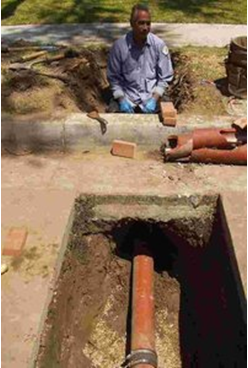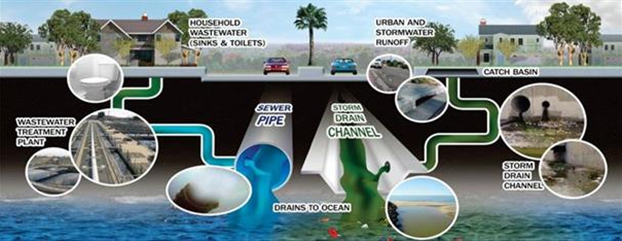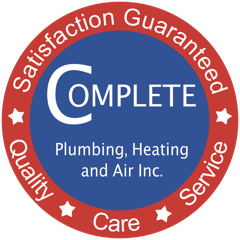HISTORY OF THE CITY OF CYPRESS
After World War II, many farmers were forced out of Long Beach, because a great number of GI’s wanted to live there; the farmers then relocated to Cypress. The Cypress School District had a summer playground program, an art teacher and a music teacher. In the late 1940s, Cypress was the third-largest dairy district in the United States. In 1944, the School District started the first kindergarten. Miss Dickerson was elected Superintendent of Schools. On August 3, 1947, Frank Vessels, Sr. held a race at his farm on Katella with 2,000 paid observers. They watched six races with purses of $50 and $100. Modern purses range as high as $250,000 on the same track. In 1949 the Cypress Recreation and Park District was formed. In the 1950s, Dairy City (Cypress), Dairyland (La Palma) and Dairy Valley (Cerritos) were known as Moo Valley. In 1952, the School District hired a full-time nurse. In 1956, the school district hired a psychologist and the population of the city was 1,616 people, 24,000 cows. On July 24, 1956, Cypress was incorporated and named Dairy City. The first City Council consisted of Alfred E. Arnold (Mayor Pro Tem), Walter J. Arrowood, Thomas A. Bartholdi, Jacob Van Dyke, (Mayor) and Jacob Van Leeuweer, Jr.
Based on a straw vote of the residents on August 6, 1957, the City’s name was changed to “Cypress”. The ballot result was 208 votes in favor of “Cypress” and 41 votes against the change.
WHERE DOES CYPRESS CITY WATER COME FROM?
The Metropolitan Water District of Southern California (MWD) is a consortium of 26 cities and water districts that provides drinking water to nearly 19 million people in Southern California, including West Basin Municipal Water District (WBMWD) from whom the City purchases treated water. MWD supplies the City with water treated at the F.E. Weymouth Treatment Plant. Most of the water treated at this plant travels down the Colorado River and flows through MWD’s 242-mile Colorado River Aqueduct. Some MWD water also comes from Northern California rivers and streams that feed the State Water Project’s 444-mile California Aqueduct.
The Weymouth plant uses conventional techniques to treat your water. This includes the coagulation process where aluminum sulfate and other chemical additives cling to particles in the water, forming large particles that settle to the bottom of large sedimentation basins. Then, the water flows through coal and sand for filtration. Chloramine (chlorine plus ammonia) disinfection is used to kill remaining microorganisms, such as bacteria, and to keep the water safe as it travels to your tap.
The Water Replenishment District of Southern California (WRD) manages groundwater for nearly 4 million residents in 43 cities of Southern Los Angeles County. There is one groundwater source well within the City, Well No. 5, with an approximate production capability of 1,500 gallons per minute (GPM). The City has adjudicated rights to 1,352 acre-feet of groundwater, annually. One acre-foot is enough water to cover an entire football field about one foot deep and provides the annual water needs for two average-sized households
ARE THERE CONTAMINANTS IN CYPRESS CITY WATER?
ARE THERE CONTAMINANTS IN CYPRESS CITY WATER?
The sources of drinking water (both tap water and bottled water) include rivers, lakes, streams, ponds, reservoirs, springs and wells. As water travels over the
the surface of the land or through the layers of the ground it dissolves naturally-occurring minerals and, in some cases, radioactive material, and can pick up substances resulting from the presence of animal and human activity.
Contaminants that may be present in source water include:
Pesticides and herbicides, which may come from a variety of sources such as agriculture, urban stormwater runoff, and residential uses.
Microbial contaminants, such as viruses and bacteria, which may come from sewage treatment
plants, septic systems, agricultural livestock operations, and wildlife.
Radioactive contaminants, which can be naturally occurring or be the result of oil and gas production or mining activities.
Inorganic contaminants, such as salts and metals, which can be naturally occurring or result from urban storm runoff, industrial or domestic wastewater discharges, oil and gas production, mining and farming.
Organic chemical contaminants, including synthetic and volatile organic chemicals, which are by-products of industrial processes and petroleum production, and can also come from gasoline stations, urban stormwater runoff, agricultural application and septic systems
SHOULD I DRINK AND BATHE WITH CYPRESS CITY WATER STRAIGHT FROM MY FAUCET?
Some people may be more vulnerable to contaminants in drinking water than the general population. Immuno-compromised people, such as those with cancer who are undergoing chemotherapy, persons who have had organ transplants, people with HIV/AIDS or other immune system disorders, some elderly persons and infants can be particularly at risk from infections. These people should seek advice about drinking water from their health care providers.
The USEPA and the federal Centers for Disease Control guidelines on appropriate means to lessen the risk of infection by Cryptosporidium and other microbial contaminants are available from USEPA’s Safe Drinking Water Hotline at (800) 426-4791 between 10 a.m. and 4 p.m. Eastern Time (7 a.m. to 1 p.m. in California)- source: 2017CypressWater consumer confidence report.
Complete Plumbing recommends installing a Catalytic Carbon Whole house water filtration system by Aqualistic Water Products to remove most of the harmful chemicals in your city water, leaving you with bottled quality water at every faucet in your home.
CYPRESS PLUMBING TIPS
Fix leaky faucets. For every leak stopped, you can save 20 gallons of water per day.
Develop a watering schedule for your irrigation system. To learn more, visit www.bewaterwise.com/calculator.html.
Use native plants in your landscaping. Planting and maintaining beautiful California native and water-friendly plants can save between 1,000 and 1,800 gallons per month.
Install a high-efficiency toilet or clothes washer. A temporary rebate program is still available. Other rebates are also available for sprinklers and artificial turf. To learn more, visitwww.ocwatersmart.com.
MWDSC has its own water conservation website. To find out more information on water-saving plants and other useful tips, visit www.bewaterwise.com.
CYPRESS RESIDENTS should make sure that their plumbing systems are in good working order and are leak-free. This is important, not only for saving money on your water bill and limiting damages to property, but it is our responsibility to provide clean fresh water for future generations.
DID YOU KNOW?
Water Leaks:
- Nationwide, more than 1 trillion gallons of water are lost annually due to household leaks. That’s equal to the annual water use of more than 11 million homes.
- The average household can waste more than 10,000 gallons each year due to correctable leaks. That’s enough to wash 270 loads of laundry!
- Ten percent of homes have leaks that waste 90 gallons or more per day! Common sources include toilets, faucets, showerheads, and landscape irrigation. But you should also consider less obvious sources of leaks: water heaters, ice makers, dishwashers, and filtration systems. Many of these are easily correctable, and fixing them can save about 10 percent on the average water bill.
- Be sure to check your toilet for leaks at least once a year. Put food coloring in the tank. If it seeps into the bowl without flushing, there’s a leak. And if your toilet flapper doesn’t close properly after flushing, replace it.
- Remember, one drip a second adds up to five gallons lost per day!
So regularly check your faucets and showerheads, as well as all hoses and connectors. - Many household leaks can be solved with simple tools and a little education — and fortunately, Do-It-Yourselfers have access to multiple resources. But even if you must pay for repairs, you will still save money in the long run. For more information on water conservation, visit ocwatersmart.com.
- Complete plumbing provides leak detection of even the smallest amount of water which could prevent costly water bills and possible damage due to water leaks
- Complete plumbing utilizes automatic water shut off valves that detect leaks, automatically shuts off the water to your home then sends you an alert via a smartphone app. You can turn the water on and off, monitor water usage and temperature right from your phone!
CYPRESS CITY SEWER DRAINAGE SYSTEM

- Most Cypress homes have just one main sewer pipe that connects the sewer system from their house to the city’s main sewer system. Homeowners are required to maintain that sewer pipe up to and including the middle of the street and may be responsible for repair costs should a problem occur.
- Complete Plumbing has the capability to use a sewer drain camera and location device to inspect sewer lines for breaks, cracks root intrusions. This simple examination of your sewer system may save thousands of dollars in repair costs.

Stormwater is water from rain that does not soak into the ground. It flows over paved areas like streets, sidewalks, and parking lots, as well as roofs and sloped lawns. As it flows, the stormwater collects and carries pollutants such as litter, pet waste, pesticides, fertilizers, and motor oil. This “toxic soup” then flows through a massive system of pipes and channels directly into our local waterways and the ocean.
What is the difference between the storm drain system and the sanitary sewer system?
The storm drain system and sanitary sewer system are both large conveyance systems of underground pipes. This leads to the misconception that the systems are one and the same. They are in fact separated and serve different purposes.
The sanitary sewer system transports domestic sewage to a treatment plant. Domestic sewage includes wastewater from household and commercial plumbing, such as toilets, showers, and sinks. There, contaminants are removed from the sewage through a multi-stage process, which includes settling, filtering, and biological and chemical treatment. The treated water is then discharged into local waterways or used as reclaimed water.
The storm drain system, on the other hand, was designed to prevent cities from flooding. Its purpose is to quickly transport rain runoff (stormwater) away from the city and into the nearest waterway, without treatment. And so, any pollution carried by stormwater also enters our waterways untreated.

We have been serving Cypress Residents for over 30 years and know a lot about Cypress water filtration systems, Cypress Plumbing Systems, Cypress heating, and air conditioning systems, Cypress tankless water heaters, Cypress drain cleaning
Call and ask about our Cypress residents specials
READY TO GET STARTED?